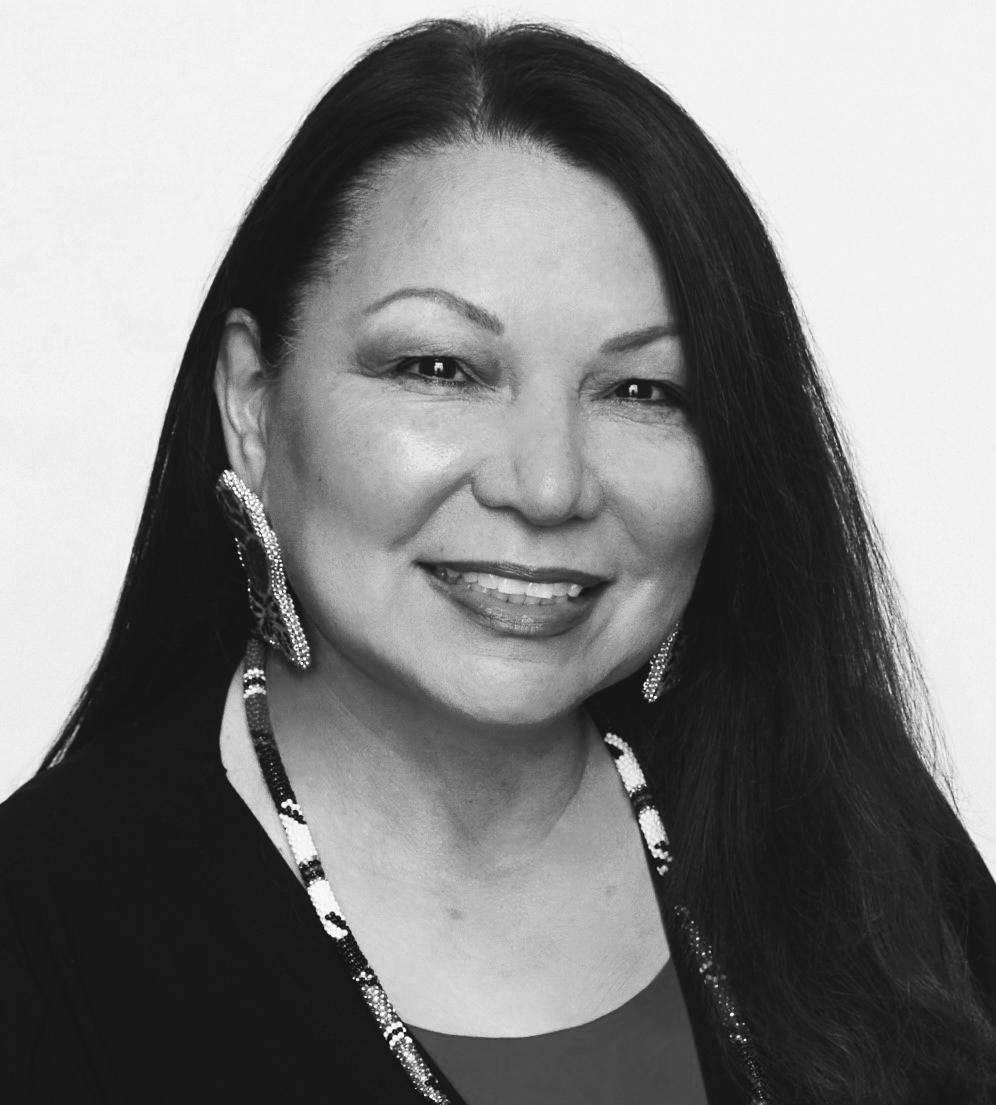
2 minute read
BONNIE Rogers
WOMEN EMPOWERING WOMEN: BONNIE ROGERS’ MATRIARCHAL ROOTS STEER HER PATH
Bonnie Rogers, a Dene language teacher, drew inspiration from her matriarchal relations and Traditional guidance to direct her teaching path.
Advertisement
Bonnie Rogers is a Dene language teacher, who has been driven through Traditional means, strong matriarchs, and a desire to pursue mainstream education in pursuit of her calling.
Although Ms. Rogers’ path wasn’t straightforward, she knew she wanted to follow in the footsteps of her Aunties and pursue post-secondary education. She completed a degree in health, with a concentration in Indigenous studies, and also obtained a certificate in beauty. Her intent was to become a public health inspector and practise as a beautician on the side.
But when she found herself struggling to find her path, she turned to her ancestors for guidance.
“I ended up going to a ceremony and seeking guidance there … and I just heard in my mind, ‘teach your language,’” Ms. Rogers says.
Though the message came through loud and clear, she was taken aback by unexpectedly being steered toward something that “wasn’t even on the radar.” She asked a second time and found, “Dene language started coming to me. I was really shocked to get that feedback from my ancestors.”
Though she’d been surrounded by the Dene language her whole life—she was raised by her grandparents, who were fluent in Dene—she never envisioned a career in teaching it until she received that message.
“This whole time, the language component was not on the radar or my mind at all,” said Ms. Rogers. “It was not obvious to me. Maybe subconsciously it was there, but it was not on my mind.”
From there, things just fell into place. She applied to a masters of language program and became the Indigenous Language Coordinator at a Friendship
Centre in Regina, all within about a month from receiving direction during that single ceremony.
“I just knew I had to listen because, I knew it was a definite message,” Ms. Rogers said. “Looking back, I’m really, really fortunate that I can understand my language, and read and write it.”
She attributes her success, both in her career and in life, to the strong, driven, matriarchal Dene women who came before her.
“The reason why I chose to pursue secondary education in the community is because I saw my Aunties do it, and be single mothers and get their degrees and struggle. It’s really powerful to see that. I see them in my community now and some of them are directors of their area of expertise,” says Ms. Rogers. “It’s just really amazing to see and to come from a community where women are supported in that way.”
Ms. Rogers says that no matter where she was travelling, either for work, school, or pleasure, it was always reassuring knowing she had her matriarchal roots waiting for her in her community, in Northern Saskatchewan.


“I feel really fortunate that back home that matriarchal society is still somewhat intact. We are respected. The political leadership is actually a lot of females. It’s really empowering,” she says. “It does fit naturally to my family, and my hometown, to have women in those roles.”

Seeing examples of women leading women while she was growing up has been empowering, for her and for the whole community. If these roles were embraced in other communities, Ms. Rogers says, she can’t even begin to describe how inclusive, progressive, and forward-thinking this would be.
“If those opportunities were there for people all over, I can just see how that would impact their families and the generations to come too,” Ms. Rogers describes. “To [go into] leadership positions and have the confidence to pursue whatever they want.”







